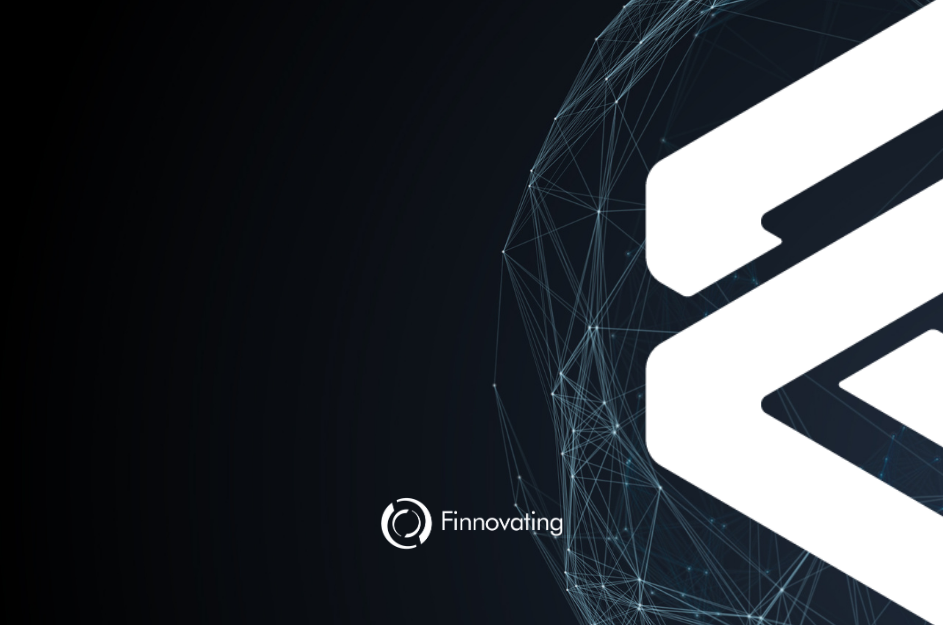Since the cryptocurrency sector is growing and regulations are piling up accordingly, AML compliance is more important than ever. AML compliance for Virtual Asset Service Providers (VASPs) involves services like Know Your Customer (KYC) checks, transaction monitoring, sanctions screening, all of which we’ll explain later in our blog post. Compliance with the Financial Action Task Force (FATF) Travel Rule is also crucial for crypto firms since this regulation demands that your company share sender and recipient details with regulators if needed. VASPs should also register with regulators, maintain transparent records, and file Suspicious Activity Reports (SARs) when odd activities occur.
What Is AML Compliance in the Crypto Industry?
The first cryptocurrency AML guidance of FATF was published in 2014. AML compliance for crypto companies is important since this industry is just getting started and adhering to regulations will be benefitting your company in terms of avoiding fines and preventing financial crimes. You can conduct identity checks like KYC and CDD which help verify the legitimacy of your customers. These checks being conducted with a tool will also help you complete the onboarding process easier and more efficiently. Transaction monitoring for customers after onboarding will help your company spot anomalies and prevent them from going further. After spotting odd behaviour or transactions, your company should be filing Suspicious Transaction Reports (STRs) or Large Cash Transaction Reports (LCTRs). Compliance is ultimately reached once your company is aligning its inner workings with regulations and regualtory bodies like the FATF standards, the Anti-Money Laundering Directives (AMLD) in the EU, and FinCEN in the U.S. The cryptocurrency exchange BitMEX has been fined $100 million in 2025 by the U.S. Department of Justice for deliberately ignoring U.S. anti-money laundering laws in order to boost revenue. Not adhering to these regulatory bodies’ regulations will end up with fines and more serious penalties from government officials.
Why Is AML Important for Crypto Exchanges and VASPs?
One of the most important reasons for the need for AML compliance is to satisfy regulatory bodies like FATF, SEC, and FinCEN. These regulatory bodies are asking for modern AML programs from crypto firms. If you fail to reach compliance, consequences may involve penalties and your license getting revoked. Since it is a newer industry and provides an anonymous environment, the crypto sector deals with international money laundering, ransomware payments, and fraud more. If your AML compliance is top notch, this will build trust with both customers and investors.
What Are the Main AML Requirements for Cryptocurrency Businesses?
There are many requirements to be fulfilled by crypto companies when it comes to AML compliance. Customer Due Diligence (CDD) is the first foundational part of compliance on our list. CDD helps immensely during onboarding since firms are tasked with verifying every user before the start of their transactions. IDs, address proofs, and other documents that prove the customer’s legitimacy are used to verify the person. CDD also helps you assess the customer’s risk level before onboarding and act accordingly.
Enhanced Due Diligence is similar but a bit more detailed. High-risk users and transaction are targeted by EDD. Deeper verification, more frequent monitoring, and additional documentation is what EDD entails. Especially politically exposed persons (PEPs), large volume traders, and accounts from high-risk regions are subjected to this solution.
Similarly, as a crypto firm, you should be screening your customers continuously against international sanctions watchlists and PEP databases. Doing this will help you prevent transactions from and to sanctioned parties, while also ensuring compliance and avoiding penalties. Transaction monitoring is another measure where your company uses tools to track transactions real-time in an automated manner. By monitoring transactions, you will be able to catch odd activity early on and act accordingly. Once suspicious activity is detected, another important step is filing a Suspicious Activity Report (SAR) or a Suspicious Transaction Report (STR) with regulatory bodies. This way, you will be escalating potentially criminal behaviour to teams who can deal with them.
Implemention of the Travel Rule is also important for your company. With this rule, your company will be required to share sender and recipient details of virtual asset transfers. Especially important for international payments, this rule makes it easy to track fund movement. Another requirement is the risk based approach. This approach divides your customers into risk levels and prioritises stricter controls for high risk customers, and eases controls on low risk customers to more efficiently use its AML solutions.
Which Regulations Apply to Crypto AML Globally?
With the cryptocurrency industry gaining attraction all around the world, the regulations are shaped accordingly. Your company should be able to adapt to different regulations set forth by several regulatory bodies for different jurisdctions. For example, in the U.S., FinCEN is the responsible regulatory body. FinCEN enforces the Bank Secrecy Act (BSA) and Money Services Business (MSB) rules to further regulate crypto firms by encouraging them to implement KYC, transaction monitoring, and similar obligations that will benefit your company greatly. When it comes to the EU, AMLD6 and MiCA are the acts that demand modern KYC solutions and AML programs that include risk-based approach to create safer VASPs. The UK has the FCA to oversee AML compliance, the regulatory body mandates AML registration for all crypto firms.
Canada’s FINTRAC is tasked with enforcing the Proceeds of Crime (Money Laundering) and Terrorist Financing Act (PCMLTFA). Another example, Singapore, has MAS to apply the Payment Services Act on VASPs to regulate transaction activities. Globally, FATF is the place to go. This regulatory body sets standards for VASPs and includes regulations like the Travel Rule to create a safer environment in the crypto industry. To give examples from around the world, in early 2025, AUSTRAC initiated compliance investigations against over 50 crypto exchanges and remittance services. The regulatory body went from offering guidance to actively enforcing its rules, which made companies more compliant.
How Does the FATF Travel Rule Apply to Crypto?
For transfers of over USD or EUR 1,000, the FATF Travel Rule is applied. The sender and recipient details of the transfers are then required to be stored and shared. All VASPs including exchanges, custodians, and other crypto related intermediaries are subjected to this rule. Especially important when it comes to international payments, the implementation of API based tools or data sharing systems that are trustworthy will help save your company from spending needless time and resources on this issue. Adhering to the Travel Rule is important for your company be transparent while also collaborating with regulators if suspicious activities occur within the transfers your company supplies.
What Are Red Flags for Suspicious Crypto Transactions?
We realize that detecting suspicious activity might be hard for your company. With our list, our readers will be more knowledgeable about catching red flags. Rapid movement of funds across multiple wallets or jurisdictions is often done to avoid getting detected, and it should be the first red flag you should be watching out for. This is called layering and it is used to hide the origin of illicit funds. Privacy coins like Monero and Zcash is also troublesome. These tokens, as you can guess by its name, hide the transaction details and make transaction monitoring trickier. Mixers or tumblers are another concern for crypto transactions. These services bring funds from different sources and redistributes them afterwards to hide the origin of funds, which is really dangerous since illicit funds may also be moved using them. They are heavily associated with ransomware payment laundering and darknet proceeds. Repeated or structured transactions may seem innocent, but they can also be used for illegal activities. Keeping transactions just below reporting thresholds is one way fraudsters use.
What Are the Penalties for Non-Compliance?
One of the penalties you’ll face financial fines that may go up to millions, or even billions. But it doesn’t stop with monetary penalties. Your crypto business may lose its operating licenses as a result of non-compliance. In serious cases that are done deliberately, your company executives may face criminal charges, with ending up in prison being one of the possibilities. Assets tied to odd activity are freezed or seizured which affects both your company and customers. Your company may get banned from markets because of non-compliance, and the reputational damage you will face will be hard to recover from. With their Operation Destabilize, British authorities dismantled two transnational money laundering networks connected to Russian oligarchs and cybercriminals in 2024. Seizing £20 million (about $25.4 million) in cash and cryptocurrency, the operation led to 84 arrests. The operation’s results show that the penalties don’t stop at financial fines and may lead to criminal charges.
What Tools Help Crypto Firms Stay Compliant?
We’ll now go over some of our recommendations of tools that will help you reach compliance against regulators. Identity verification APIs are there to help your company adhere to KYC requirements during onboarding. Afterwards, sanctions and politically exposed persons (PEP) screening will prevent you from working with sanctioned parties or pay more attention to your high-risk customers. AI based monitoring systems are also widely popular within the crypto space since they reduce the labor of monitoring and make it more efficient. Onboarding platforms that are integrated to your systems will help support your company next to identity verification APIs during onboarding. You will both be getting a safe and fast onboarding process thanks to these solutions. Finally, adverse media alerts are great since they let your compliance teams know which of your customers recently were involved in negative news.
How Can Sanction Scanner Help with Crypto AML?
Our team at Sanction Scanner will help ease your concerns regarding AML compliance when it comes to your crypto company. Our VASP focused name screening service allows you to verify customers safely before onboarding. Crypto wallet screening is another one of our services, which allows your company to assess the risk level of that specific wallet and find connections of illegal activity if there are any. The integration of PEP, sanctions, and watchlist screening done by Sanction Scanner will make sure your compliance team has all the information they need to scan your customers against global watchlists. Finally, our service of ongoing monitoring of wallet activity and risk levels will ensure that you catch threats before they get more serious.
FAQ's Blog Post
AML compliance in crypto is the process of applying anti-money laundering rules to exchanges, wallets, and VASPs.
AML compliance is important because it prevents money laundering, terrorist financing, and regulatory penalties.
Exchanges, custodial wallets, payment providers, and DeFi platforms with fiat gateways must follow AML rules.
Crypto companies must perform KYC, monitor transactions, report suspicious activity, and follow Travel Rule.
Regulators enforce AML in crypto through licensing, inspections, fines, and cross-border FATF cooperation.
Crypto firms risk heavy fines, loss of license, banking restrictions, and reputational damage.
Sanction Scanner provides crypto firms with KYC, transaction monitoring, and sanctions/PEP screening tools.









